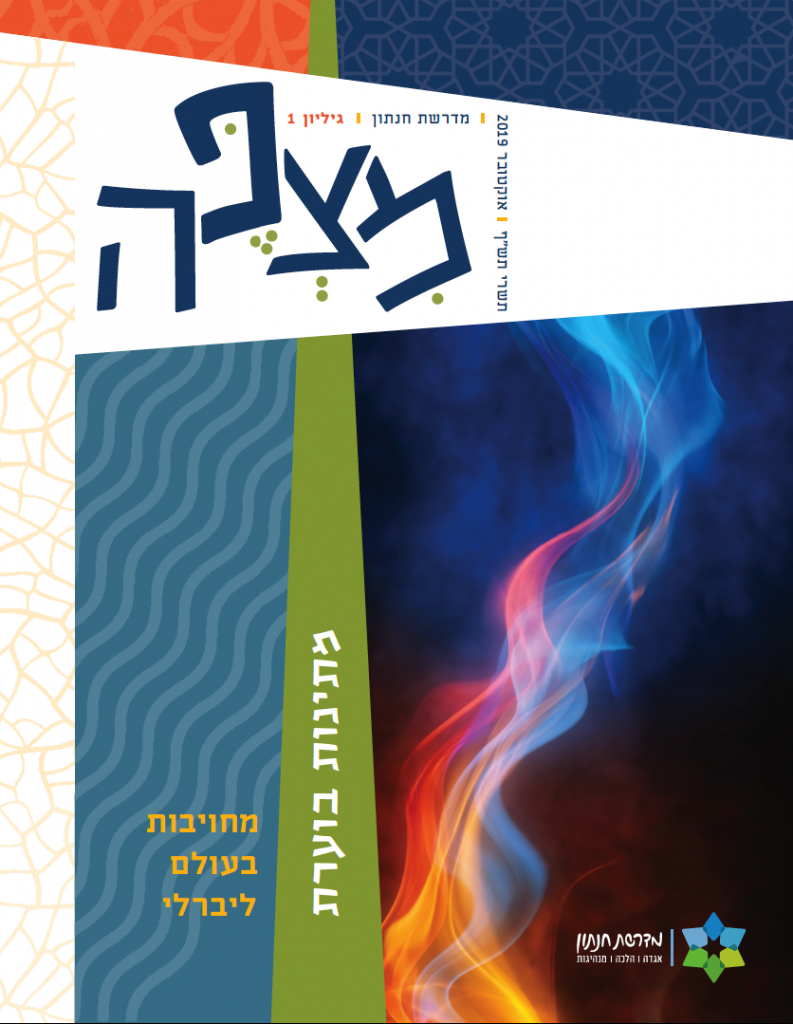The Western Wall Crisis as a Surprise in Israel-Diaspora Relations
Five years ago, on the morning of June 25, 2017, the Israeli government shelved the Western Wall compromise, which was meant to enable egalitarian prayer in the central plaza of the holy site. The compromise was scrapped unilaterally and seemingly out of nowhere. This particularly came as a surprise in light of the fact that the compromise was canceled after four and a half years of discussion between Israel and Diaspora Jewish leaders, mediated by Natan Sharansky, then the chairman of the Jewish Agency.
The response was fierce, in a deviation from the usual civility of American Jewish organizations’ conduct towards Israel. “The Federation in Chicago will not be hosting any member of Knesset that votes for this bill,” said Steven Nasatir, president of the Chicago Jewish Federation. “None. They will not be welcome in our community.”
Similar replies were heard from major philanthropists who had dedicated their lives and their wealth to Israel and the Jewish people. Criticism and rebuke that had once been heard only behind closed doors suddenly resounded in the public square. Charles Bronfman, one of the Jewish world’s most prominent philanthropists, wrote to Israel’s then-Prime Minister Benjamin Netanyahu that he knew of no other country that “denies any Jew based on denomination.” In case the message was not sufficiently clear, the Jewish Agency Board of Governors revoked Netanyahu’s invitation to its annual gala. These events made waves well beyond the Jewish community, and were covered in leading newspapers such as the New York Times.
Only the Jewish people’s holiest site – the Western Wall, symbol of the Jewish nation – could have aroused such a heated and public response.
The cancellation of the Western Wall compromise was ostensibly just one more link in a chain of events that had distanced and even alienated Israeli Jews from their brothers in the Diaspora. In the past few decades, many events of this kind, primarily with regard to issues of religion and state, or majority vs. minority rights (both within Israeli society and in Israeli-Palestinian relations), have brought tensions to a head (and sometimes led to solutions).
However, the cancellation of the Western Wall compromise in 2017 created a unique crisis. The primary victims were at the heart of the active Jewish leadership, the tiny percentage of Jews who have devoted their lives to the wellbeing of Israel and the Jewish people. This stands in contrast to other crises in the past, which primarily targeted the Jewish periphery – those Jews farthest removed from Israel or from their Jewish identity, for whom every negative scrap of information only makes Israel or Judaism feel even less relevant to their lives.
Therefore, the response to the Western Wall crisis came from senior Jewish leadership, who decided to air their dirty laundry in public this time. Because of the intensity of the crisis and its public nature, it also initiated a process of repair and rebuilding, as I will discuss in this article.
The question of whether non-Orthodox Jews can feel at home at the Western Wall exists within a larger context. With the cancellation of the Western Wall compromise, numerous tensions that had simmered in the Israel-Diaspora relationship for many years finally came to a boil. The crisis took place in a blind spot that has gradually formed in Israel in recent decades – a blind spot that pertains to the core question of Zionism: What does it mean to be the national home of the Jewish people in the 21st century?
The Home of the Jewish People – Israel’s Mission
Zionism is the liberation movement of the Jewish people. As such, Israel’s mission is not to invent new cherry tomatoes or the Iron Dome, and not even to create an exemplary society. Rather, Israel’s mission is to fulfill the Jewish people’s right to self-determination, a right that is reserved for nations alone. This mission can only be accomplished through the establishment of a national home for the Jewish people – not only for the Jews here in Israel, who as of now still do not comprise the majority of the world’s Jews, but for the entire Jewish people.
For dozens of years, Israel successfully fulfilled this mission, primarily by keeping its doors open for Jewish immigration. Even when Israelis were forced to share their bounty with new immigrants, Israel continued to facilitate and absorb immigration. The important Zionist value of Jewish immigration still plays a central role, with almost no dissent. However, for Israel to fulfill its mission as a national home for the entire Jewish people, this value alone is no longer sufficient. As a result of profound global trends (citizens of the world; a class of “global nomads”), trends in Israel (cycles of immigration and emigration, and the erasure of the old dichotomy between the two), and trends in world Jewry (the persecution of Jews at a historic low), immigration may remain an ideal, but it can no longer comprise the be-all and end-all of Israel’s mission. Therefore, it is a Zionist imperative to reinvigorate and strengthen Israel’s mission as the national home of the Jewish people.
“Negation of the Exile” – Israeli Society’s Blinders
The primary obstacle for Israeli Jewish society in dealing with this crucial issue is “negation of the exile,” a deeply rooted idea in Israeli Zionism. Negation of the exile is a view that runs through the Zionist movement, finding expression and language in the writings of J. H. Brenner and others. According to this view, exile is a temporary and undesirable phase that will ultimately come to an end with the immigration of all Jews to Israel. Those who stay in exile will either not survive or not remain Jewish.
The challenge faced by the generation of Israel’s founders was the establishment of a national home. If we compound that task with the negation of the exile, what we get is the view that the Israeli Jew is more important and exalted than the Jews who remain in the Diaspora and/or “support Israel from the outside.”
Even today, this view is widespread in Israeli Jewish society. Diaspora Jews can make up for their supposed inferiority by immigrating to Israel, and then Israelis will admire them for the fact of having done so. However, there is a good chance that the new immigrants will encounter mockery and indifference toward the world they have brought with them, as well as pressure to become “as Israeli as possible, as fast as possible.”
Thanks to our negation of the exile, we Israelis have a tendency to see our brothers’ situation in the Diaspora as lesser, temporary, undesirable, unsustainable. This perspective, which informs Israel-Diaspora relations today, does not allow Israel to flourish and endangers the fulfillment of the Zionist vision.
The Dangers of this Approach
The State of Israel, like other young nation-states around the world, needs two sources of legitimacy to exist. The first is international legitimacy. Thus, for example, BDS organizations understand that the deterioration of Israel’s international legitimacy will weaken Israel, and so they act to further this deterioration. The second, and more important, is internal legitimacy – legitimacy among the Jewish people. The right to self-determination is reserved for nations, and perhaps this right may only be fulfilled once a critical mass of the nation grants full weight to the national idea.
At first, the Zionist movement suffered from a lack of legitimacy within the Jewish people. The early Zionists were wise enough to band together and cooperate to an astonishing extent, but almost every group that comes to mind was opposed to Zionism at its inception: educated Jews, local patriots (nationalists), socialists, the ultra-Orthodox, the Reform Movement, and so forth. Only a specific configuration of historical events – an increased persecution of Jews that reached its apex with the Holocaust; a growing international willingness to allow the formation of a Jewish home (for example, in the Balfour Declaration); and of course Jewish immigration to Israel, which determined the reality on the ground – led to massive support for the Zionist idea among the Jewish people by the time the establishment of the state was announced.
However, only in 1967 did the support and consent of the majority of the Jewish people gain a strong foundation. In that year, “the year of the Zionization of Diaspora Jewry,” the seeds were sown for both unity and division: Israel’s victories in the Six-Day War, particularly the liberation of Jewish holy sites such as the Western Wall, led to a widespread faith that the Zionist idea had a chance of succeeding, and inspired amazement and pride throughout the Jewish world. That year, more and more Jewish organizations, such as the American Jewish Committee (AJC) and the Union of French Jewish Students, began to systematically define themselves as Zionists. Israeli flags began to appear in synagogues across the Diaspora, among other such gestures. As we noted in the beginning of this article, the very same Western Wall that once played a major role in world Jewry’s mass embrace of Israel in 1967 is now the site of the two sides’ bitterest arguments.
The primary fear is that recent events, in which Israel has failed to fulfill its mission as a national home for the Jewish people, have eroded the Jewish state’s basis of legitimacy among the Jewish people. The depth of the danger posed by this possibility to the Zionist idea is inestimable. If Diaspora Jews actively or passively turn their backs on Israel, Israel will find itself more exposed in the international sphere; it will lose a unique and irreplaceable source of power for its economy, national security, philanthropy, and society; its international legitimacy will be damaged; and most of all – without the Jewish people, Israel will be unable to fulfill its Zionist mission, to serve as a national home for the entire Jewish people. Despite these dangers, the State of Israel operated from a “negation of the exile” standpoint in 2017, remaining blind to deeper trends and their significance.
Jewish Peoplehood as a Theoretical Response to “Negation of the Exile”
“Jewish peoplehood” is a somewhat odd phrase that has entered the Israeli lexicon, but its meaning is simple and intuitive: We Israelis – along with the majority of the Jewish people, who live outside of Israel – are members of the Jewish people. We are first and foremost a family, a large tribe. We are not only a religion and not only a Jewish nation (in the narrow sense of the word – i.e. sovereignty over the Land of Israel). Rather, we are part of something greater, more ancient, and more meaningful – the Jewish people.
Together, we share memory and history, a homeland and a language, a religion and a covenant with God, heritage and cultural assets, and more. We have an obligation to the generations before us, as well as to future generations, to whom we will bequeath the Jewish inheritance and mission. And we have an obligation to one another, each community to the other, because we are a nation.
In this sense, any idea that is not in the spirit of “peoplehood” diminishes the whole of the Jewish people. Today, we see two common mistakes: the belief that Judaism can exist only as a nation (in the narrow sense of sovereignty over the Land of Israel); and the belief that Judaism is only a religion (a common mistake among Diaspora Jews, and one which plays into the hands of our greatest enemies). Both of these views set their holders apart from the Jewish people as a whole, and they are not constructive for our future. This understanding is vital, as the future of the Jewish people is a concept that is undergoing a dramatic change in our day.
The challenge of our generation is not the establishment of a national home – not because the work is complete, but because we now face a different, complex challenge: to preserve Jewish continuity. What was obvious for countless generations – our self-definition as Jews, as contrasted to the other nations around us – may no longer be taken for granted today. Almost every Jew today has the option to choose whether or how to be a Jew. This challenge is the result of the Jewish people’s remarkable success in weathering the storms of the past two hundred years, and even prospering. This success is no less than awe-inspiring – but it contains a new and complicated challenge. Jewish institutions and leadership are not responding to this challenge, making it that much harder to prepare adequately for the future.
We have reached an unprecedented point in the history of the Jewish people, one that challenges its continuity as a single people. If we do not take action, the continuity of the Jewish people will be in jeopardy.
In response to this enormous challenge, the most basic action that we must take is the replacement of the “negation of the exile” idea with a philosophy of Jewish peoplehood – in our thoughts, our words, our deeds, and even in Israeli policy.
According to the negation of the exile, Israel stands at the very center, and therefore Israeli Jews are more important than the Jews in the “outer circles.” However, if the challenge is the continuity of the Jewish people as a single entity, all of us are equal around the circle, and no Jew is more important or elevated than his fellow. This is Jewish peoplehood.
After the Western Wall Crisis – A New Lease on Jewish Peoplehood in Israel
Educational and social activism toward Jewish peoplehood has already been taking place in Israel for several decades. In this context, we may note the Twin Schools program, the Jewish Agency’s Partnership2Gether program, the educational programs of Melitz (Avraham Infeld and his students), and so forth. However, the Western Wall crisis was a wake-up call for leaders in Israel who are passionate about the issue of the Jewish people, and it led to an increase in the quantity and quality of such activities in Israel over the past five years.
As Winston Churchill once said, “Never let a good crisis go to waste.” Indeed, today, six years after the Western Wall crisis, the societal treatment of this issue has gathered momentum and depth. As a result, today many more Israelis than in the past have been exposed to, and feel a sense of responsibility for, the connection between Israel and Diaspora Jewry. The credit for this change lies with Jewish philanthropy, such as the Jewish Federations, the Rodan Family Foundation, the Ruderman Family Foundation, the Koret Foundation, and the philanthropist Charles Bronfman, which placed heavy emphasis on the subject after the Western Wall crisis. Likewise, the change may be credited to the educational and social leaders working tirelessly for the value of peoplehood, and to the venerable organizations and institutions that took it upon themselves to advance the value of peoplehood.
First, in the past five years, the number of “reverse Birthright” delegations for senior Israeli figures has increased many times over. There are several organizations that have continued to lead and operate on this front. These delegations spend several days getting to know Jewish communities in the Diaspora. This is an intensive, highly effective tool, but its primary disadvantage is that its cost makes it inaccessible to all but a select few.
Second, in the past five years, educational activity on the subject of Jewish peoplehood – in both formal and informal education – has become much more common and extremely impressive in its quality. This educational revolution has been achieved in partnership with governmental offices, particularly the Ministry of Diaspora Affairs and the Ministry of Education. Additional participants in this field include venerable governmental agencies such as the Jewish Agency and the World Zionist Organization, various educational organizations, and educational entrepreneurs. ANU – Museum of the Jewish People, where I work today, has hosted day-long programs on peoplehood for tens of thousands of Israeli children and teens, and we’re still going strong.[1]
Today, the topic of peoplehood has been taken up by the Israeli Ministry of Education, through the study unit “Jewish Israeli Culture” and through the Youth and Society Administration. Informal education also dedicates attention to peoplehood; for example, youth associations and youth movements appoint “peoplehood coordinators,” who work with Israeli youth to cultivate a connection to Diaspora Jewry. The subject of peoplehood is also part of the yearly curriculum in most of Israel’s pre-army academies, and it is built into a growing number of leadership programs in Israel.
Third, in the previous elections for the Knesset, the vast majority of the Jewish political parties addressed Israel-Diaspora relations in their party platforms. It should be noted that more than half of these parties articulated this section of their platforms for the first time in the 2020 elections. Most of the platforms declared that the government bears responsibility for Jewish communities in the Diaspora and is responsible for maintaining a connection between these communities and the State of Israel.
Fourth, in 2018, the Reut Group established the Jewish Peoplehood Coalition.[2] The coalition provides a platform for dialogue among leaders committed to the issue of peoplehood. Today, it brings together approximately 500 Israeli leaders who, together and individually, advance the approach of Jewish peoplehood in various ways. In recent years, despite its significant internal diversity and its many disagreements, the coalition has succeeded in enabling collaborative activity, both in words and in deeds, that advances a shared vision of Israeli society as part of the broader Jewish people. I believe that much of the progress on this front has been achieved thanks to the opportunities for networking and collaboration granted to the Jewish Peoplehood Coalition by its members.
Since September 2021, my colleagues at Reut have conducted a quarterly mapping of all the activity in the field of peoplehood in Israel.[3] This mapping is meant to provide a snapshot of our progress, in light of the challenges along the way, until we reach the desired aim: an Israeli society that sees itself as part of the broader Jewish people. The mapping reveals that in the past two decades, activities in the field of peoplehood have more than doubled; a third of these activities commenced only after the Western Wall crisis. These new programs are developing new content and reaching diverse audiences.
It is hard to put one’s finger on a change in views. However, the results of the above attempts to strengthen Israel’s connection to the Jewish people have already proved themselves in a number of surveys. In 2022, the Ministry of Diaspora Affairs conducted a survey showing that 56–58% of Israelis recognize their responsibility and commitment to the continued existence of Jewish communities in the Diaspora. Further, it found that 57% of Israelis believe that Israel should take the interests of Diaspora Jews into account when making security and foreign policy decisions that affect them directly.
The Home of the Jewish People – From Walls to Family
The story of the Western Wall, the story of the tension between those who feel at home there and those who do not, has not yet come to an end. This crisis is not merely connected to the struggle for pluralism or the endless saga of religion and state in Israel – it touches on the Zionist vision itself. In recent years, the Western Wall has served as a diagnostic tool for Israel’s ability to perform its function as a national home for Jews around the world who are not citizens of the state. Will the State of Israel be wise enough to operate its holy sites for the good of all Jews, or will it work only for the good of its citizens (Israeli Jews)?
The Western Wall is a powerful symbol, of course, but it is not the issue. “The crisis behind the crisis” is that most Israelis are indifferent to the situation; they do not understand it at all and do not feel that it has any relevance to their lives or their identities. In order to solve this crisis, Zionism and Jewish Israeli society must mature into their next stage, in which not only the existence and security of our national home’s walls will be strengthened, but also our ties to our extended family. Our family is the Jewish people. Therefore, every Jew in Israel must see himself as a member of the great, age-old, vibrant Jewish people, and feel responsibility or even humility when it comes to his membership in this group.
“The crux is the people. The rejuvenation of the people precedes the redemption of the land. For us, everything rests on the people.” (A. D. Gordon)
[1] See the museum’s website: anumuseum.org.il.
[2] See the Reut Group’s website: https://www.reutgroup.org/peoplehood-coalition.
[3] This survey is available on the Reut Group’s website: https://www.reutgroup.org/.





